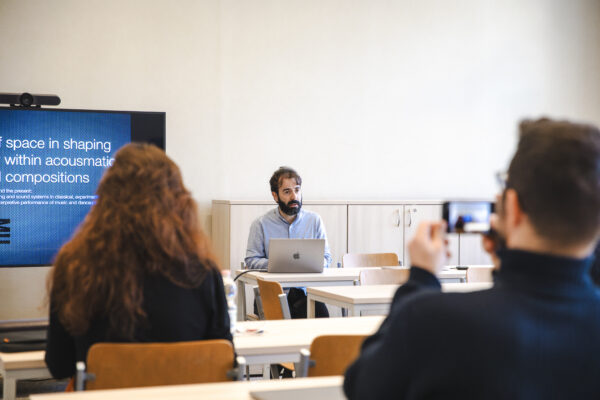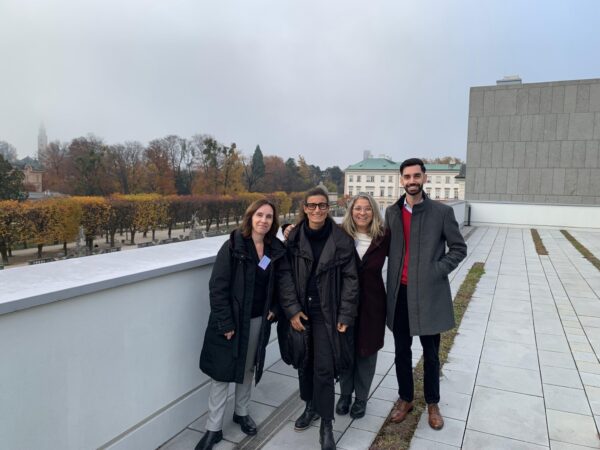EXIMUS concludes cycle of activities in Paris

Several activities held by the project EXIMUS marked the month of October.
On 5 October, at the Memória Viva association in Paris, an afternoon was dedicated to music in films about Portuguese immigration in the 1960s and 70s with Agnès Pellerin, Manuel Deniz Silva and Marie-Christine Volovitch-Tavares. In addition to Lorette et les autres (1972), an important film for the construction of the figure of the ‘militant emigrant’, which features songs by Luís Cília–then a political exile in Paris–other film excerpts, also focusing on the issue of housing (and particularly on the case of the bidonville), showed how the plural presence of music in the films of that period–from the accordion played by the residents to the lyrical song celebrating the long-awaited return to the “beloved homeland”, through the explanation, by a Coimbra fado singer, of the “joke” in the lyrics of José Afonso’s Vampiros–makes the question of the “message” of these often militant films complex, leaving their reception open to interpretation.
The theme of music was thus confirmed as a privileged vehicle for the memory of this plural history, which also includes more recent documentaries that allow us to see excerpts from other unrestored films that are in danger of disappearing.
Archives from the Memória viva association (solidarity posters, record sleeves) were exhibited.


On 9 October, the conference organised as part of the “Conversations at the Library of Calouste Gulbenkian Foundation – Delegation in France”, dedicated to Fernando Lopes-Graça’s exile in Paris in the 1930s, brought together musicologist Manuel Deniz Silva and historian Cristina Clímaco. Among other points, the importance of the composer’s stay in France was analysed in terms of his interest in traditional Portuguese “regional” music, as well as in the subsequent creation of an amateur choir as a tool in the struggle for democracy. The composer’s involvement in purely cosmopolitan artistic projects, which were encouraged in the French capital at the time, marked by many other exiles at a time of great insecurity in Europe, left deep and lasting marks on Lopes-Graça’s career, already in Portugal, after the Second World War. The contextualisation of his presence in Paris, at a time of significant mobilisation of the Portuguese in France, both politically and socially, within various movements and organisations, from the early 1930s onwards, highlighted the complementarity between works in fragmented archives related to a period much less known than that of the later Portuguese exile, due to the colonial war.

Photo: Gulbenkian Paris.

Photo: Gulbenkian Paris.
The exhibition Chansons de l’exil portugais à l’aube de la Révolution des oeillets continued, until October 31, to welcome visitors to the Maison du Portugal – André de Gouveia. Through contacts made with various Portuguese language teaching networks in France, eight guided tours, lasting 1 hour, led by the project researcher, Agnès Pellerin, welcomed classes from various secondary schools in Paris and its region (Corbeil-Essonne, Limours, Pontault-Combault, Noisy-le-Grand), including a primary school in Saint Cloud: groups of between 10 and 36 people, including teachers and accompanying adults, who listened attentively to the excerpts presented from the “Liste de morceaux”, showing interest in the international dimension of that history (and not just the “Franco-Portuguese” one) and also in the different roles played by women in the production and circulation of these songs. Some of the visitors made the connection with their own family history, while others wanted to know more about censorship or the singers’ relationship with fado.
Several teachers took the opportunity to ask for a short report on the exhibition as an exercise. Soon, the EXIMUS project will highlight some examples of these educational uses on its website.






